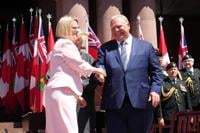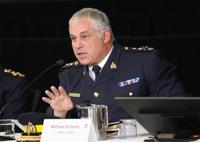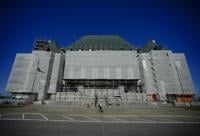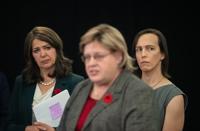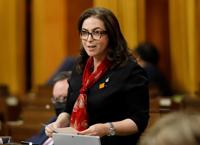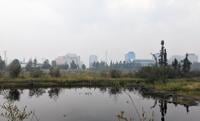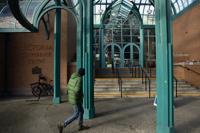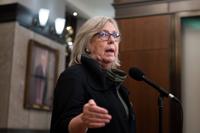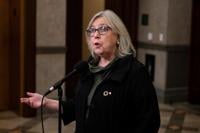Ontario government lawyers argued Tuesday there would be "irreparable harm" to the rule of law if Premier Doug Ford and a top minister were compelled to testify at a federal inquiry after citing parliamentary privilege in trying to avoid doing so.
But lawyers for the Public Order Emergency Commissioner, which is overseeing the inquiry, argued evidence of that harm was "speculative" at best.
The arguments were made in Federal Court as Ford and then-solicitor general Sylvia Jones look to quash a summons for them to appear at the inquiry examining the the federal government's use of the Emergencies Act to end the so-called Freedom Convoy protests in Ottawa and Windsor, Ont., last winter.
Both Ford and Jones have argued through their lawyers that they're immune to testifying after invoking parliamentary privilege, a centuries-old privilege enshrined in the constitution that is granted to sitting politicians.
Parliamentary privilege is what protects the separation of court, the Crown and the legislature in the proper functioning of a constitutional system, said Susan Keenan, a lawyer for the province.
"It’s important that the privilege be protected when it is under threat," Keenan said. "If not, harm is not only irreparable, but it is cumulative."
Ford and Jones were seeking a stay of a summons issued by the inquiry last week until a full hearing on their application for judicial review is heard.
The judge and the parties agreed there is no time to hear the full application because the commission only sits until Nov. 25 and Ford and Jones are set to testify on Nov. 10 if the summons is allowed.
The inquiry's commissioner wants to hear from Ford and Jones over how they handled the occupation in downtown Ottawa and the blockade of incoming traffic from the U.S. at the Ambassador Bridge in Windsor.
Ford and Jones could face contempt of court, fines and imprisonment by ignoring the summons unless they win their application for a stay, they lawyers said.
"It puts the premier and the deputy premier in the intolerable position of having to assert their privilege and be potentially faced with contempt proceedings," said Darrell Kloeze, another provincial lawyer.
The province argued that not granting a stay would have a chilling effect on all legislative bodies, leaving politicians open to possible fines, contempt of court or imprisonment if they choose not to testify in any proceeding.
Allowing the summons would erode all parliamentary privileges, Keenan said. Those include exemption from jury duty and freedom of speech in the house while enjoying complete immunity from prosecution or civil liability, and exemptions from being subpoenaed to appear in court as a witness.
The judge hearing the arguments said he was struggling with the idea that the summons itself would be invalid, given the commission has the same summoning power of a provincial Superior Court.
Justice Simon Fothergill said both Ford and Jones have "relevant" testimony to give and that the harm to them, practically speaking, is "not all that serious, just two people testifying."
He noted that parliamentary privilege resulting in immunity to being summoned to a criminal or civil court is a long-standing privilege. But Fothergill said this case will turn on whether he finds that privilege applies to public inquiries.
The province pointed to a 2005 case in Federal Court, which held that parliamentary privilege applies to public inquiries.
Commission lawyer Doug Mitchell argued no single case before has determined if parliamentary privilege applies to inquiries. He argued that privilege must be determined on a case-by-case basis.
"It is the role of the court to determine the scope (of the privilege), you don't just accept parliament's assertion," Mitchell said.
There is no blanket rule that provides immunity to sitting politicians in every single case, he said, adding that several courts have disagreed with parliamentarians asserting various types of privilege.
Mitchell said Ford and Jones's irreparable harm argument has no evidence about harm to them as individuals, only to their argument that it would harm the rule of law.
"I think that's pretty speculative at this point," he said.
Mitchell said Ford and Jones have a choice to make whether or not to waive parliamentary privilege, like other federal ministers have done, including Prime Minister Justin Trudeau and Attorney General David Lametti who are set to testify in the coming weeks.
"I don't think it constitutes irreparable harm to make a difficult choice," Mitchell said. "It's dressed up in constitutional language, but it’s not the type of irreparable harm that a court is entitled to insist on."
The judge said he'll have a decision by Nov. 8, two days before Ford and Jones are schedule to testify at the inquiry.
This report by şĂÉ«tvwas first published Nov. 1, 2022.


